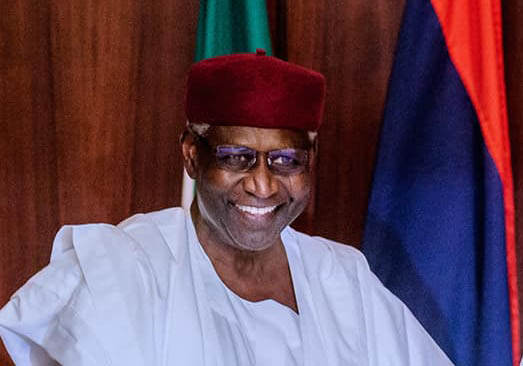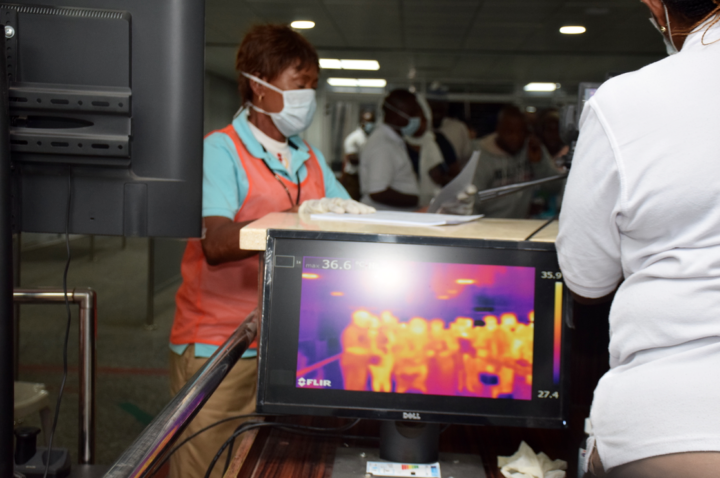BY AMADI CHIMEZIE
The Covid-19 global health crisis caused by the novel coronavirus was designated a global pandemic by the World Health Organization (WHO) in March 2020 due to its global spread and catastrophic health and economic impact across the globe. The virus has posed the greatest challenge humanity has faced since World War II. The number of people infected and global fatalities are rising daily on all continents, demanding a global response to slow the outbreak. Countries have introduced large-scale testing, tracing and treatment as well as unprecedented restrictions to social and economic life: social distancing, a ban on public gatherings and quarantining of citizens.
A THREAT TO PUBLIC HEALTH AND ECONOMIC PROSPERITY
This necessary response to the novel Coronavirus has meant this pandemic is more than just a global health crisis, it is also a devastating social and political catastrophe, casting a dark shadow over the global economy. The International Monetary Fund (IMF) has described it as the worst economic downturn since the Second World War, with devastating impacts on lives and livelihoods. The IMF’s economic outlook projects a fall in global growth of 3 percent, resulting in a trillion-dollar loss in global GDP over 2020 and 2021. For Nigeria, the IMF projects a decline of 3.4 percent in real GDP in 2020, eroding Nigeria’s upward economic trajectory (2.2 percent growth in 2019). This decline is a direct result of COVID-19 and will have severe knock-on impacts, including unemployment and other development indices.
Advertisement
ACCELERATED EXPANSION OF THE DIGITAL ECONOMY
As with other global disruptions, the pandemic has accelerated and is normalizing some significant social changes, as citizens adjust to restrictions under quarantine. Consumers have switched to shopping online for products, services and entertainment, home schooling using online resources has become the new normal, and families and friends have resorted to digital socialization to keep in touch with loved ones. Mobile and internet use saw an unprecedented increase in March 2020 compared with the same period in 2019 (74 percent rise in global sales and 97 percent increase in online gaming in March 2020, according to ACL Worldwide Research). President Buhari summed it up perfectly in his national address of April 13, 2020 on the fight against COVID-19: “as a result of this pandemic, the world as we know it has changed. The way we interact and trade, travel, educate our children and earn our livelihoods will be different”. Evidently, countries and economies with a virile digital economy have been more agile in adapting their socio-economic activities to align with this new normal.Nigeria has signaled a willingness to develop a strong and effective digital economy, but there is still a long way to go to make this a reality. In the latest Network Readiness Index (NRI) report published by the World Economic Forum, Nigeria ranked 111 out of 121 nations assessed globally in 2019. By contrast a number of other African countries were ranked higher than Nigeria, including South Africa at 72, Rwanda at 89, Kenya at 93 and Ghana at 95. The NRI framework assesses the impact of ICT on the development of nations and is the leading global index for use of technology for enhanced competitiveness, growth and technology adoption.
COVID-19 has highlighted the urgent need for a strong digital economy for Nigeria and may well prove to be a watershed in Nigeria’s quest for a digital technology revolution. Whilst tackling the enormous public health challenge of COVID-19, it is important that the opportunities identified in the fight against the pandemic are also committedly pursued by the government and technology stakeholders. The economic priority should be addressing the dearth of infrastructure which poses the first obstacle to enabling a digital economy.
Advertisement
AN OPPORTUNITY TO ACT
The current global lockdown is proving effective at reducing the spread of COVID-19. Until an effective treatment or vaccine is developed, countries are likely to continue to use intermittent periods of partial or total lockdowns to manage the pandemic. In light of this new reality, it has become expedient for our government and industry stakeholders to work together to develop the technology and infrastructure needed to support a robust digital economy in Nigeria. In the short term, this will be key to ensuring that Nigeria continues to drive economic activity during the lockdown to mitigate the projected economic impact of COVID-19. In the long term, this will enable Nigeria to fully leverage information and communication technology (ICT) to foster inclusive and sustainable growth, competitiveness and social well-being of citizens. This is aligned with the vision of the Honorable. Minister of Communication and Digital Economy, Dr. Isah Ali Ibrahim Pantami and the Executive Vice Chairman of the Nigerian Communications Commission, Prof. Umar Garba Danbatta. The foresight in developing the National Digital Economy Policy and Strategy 2020-2030 and the National Broadband Plan 2020 could not have been timelier.
Building a modern and resilient digital economy for Nigeria requires multi-stakeholder collaboration to ensure the right policy environment, adequate investment and access to Information and Communication Technology (ICT) expertise. Government and other Stakeholders in the ICT ecosystem must work together to ensure these key ingredients to success are in place by:
- Facilitating widespread broadband infrastructure deployment across the country to spur economic growth:
- The World Bank’s 2016 report on the link between broadband and economic growth shows that a 10 percent increase in national broadband coverage drives a corresponding 1 percent growth in GDP. Access to quality and affordable broadband will therefore be critical in helping Nigeria mitigate the severe economic impact of COVID-19 and continue to support economic growth after the pandemic.
-
- Government should remove the impediments to a widespread deployment of a high-speed optic fibre-based internet network across the country. These impediments include multiple taxation, wanton telecommunication infrastructure vandalization and unbearable right of way charges by states and local governments.
- The Federal Government should support NCC and the Infraco licensees to ensure a speedy roll-out of these fibre networks across Nigeria.
2. Implementing the planned support for technology hubs and startups across the country:
Advertisement
- Innovation and “techpreneurship” are the key to the digital economy, and technology hubs are the birth place of this innovation. Startups that incubate and deliver innovative products create new employment and business opportunities, thereby fostering economic growth. Now is the time for the planned support to progress from “design stage” to “implementation stage”. These initiatives range from organizing tech-hubs into clusters, supported with subsidized high-speed internet, to capacity building for innovators to upskill their entrepreneurship and access to world-class expertise.
- In addition to public sector organizations, the private sector also has a role to play in supporting the technology hubs and startups by complying with the local content preference clauses in our Public Procurement Act 2007 and the Executive Orders 003 and 005, in order to promote local content development and adoption. This will promote consumption of innovative local products and services as well as incentivize the push for technology import substitution.
3. Supporting academic curricular review across Nigeria’s educational institutions: The educational system should be reformed to make it more relevant in the emerging world driven by ICT. The new curriculum contents should seek to promote digital literacy and skills by inculcating emerging technology courses such as Artificial Intelligence, Machine Learning, Fintech, Healthtech, Augmented Reality, Virtual Reality and Internet of Things as key knowledge areas. There is equally a need to promote acado-industry (Academia/Industry), relations to ensure constant review and retooling of curriculum contents in order to consistently produce an industry-ready workforce to propel the wheels of Nigeria’s economic growth and technological advancement.
4. Supporting the efforts of the Nigerian Communications Commission in facilitating innovative services, life changing solutions and local content development through cutting edge research. Private sector funding and access to state-of-the-art facilities in global research institutes are critical in supporting knowledge transfer and expertise development.
Views expressed by contributors are strictly personal and not of TheCable.
Add a comment






